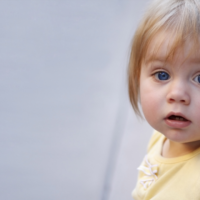Fostering
-

Early deprivation is linked to long-term social communication difficulties
Maltreatment affects a staggering 1 billion children worldwide. Most of these maltreated children, but particularly those raised in institutions that are characterized by deprivation, experience some form of neglect. These children seem to be at risk of developing social, cognitive and psychiatric difficulties later in life.
Read more -

Can we predict (complex) PTSD in young people in foster care?
Adverse, early life experiences put young people at risk of developing psychological difficulties. Potential difficulties might include post-traumatic stress disorder (PTSD) or the newly proposed, complex PTSD.
Read more -

What is the effect of post-institutionalisation? A research digest
Research digest on DePasquale, Donzella and Gunnar’s (2018) study, which was published JCPP ‘Pubertal recalibration of cortisol reactivity following early life stress: a cross‐sectional analysis’.
Read more -

Foster care promotes adaptive functioning in early adolescence among children who experienced severe, early deprivation.
Experiences in our early life can have long-term consequences on development. Children who have experienced severe deprivation, in the form of institutional care (orphanages), are at greater risk to experience a range of social, emotional, and cognitive difficulties. In fact, much of the research tracing long-term consequences of early adversity have come from a deficit model (i.e., “what goes wrong for those with negative experiences”).
Read more -

In Conversation… Professor Helen Minnis discusses attachment
Professor Minnis discusses her current innovative research with the BeST? Study, which aims to find out what is the best service for young abused and neglected pre-school children coming into foster care.
Read more -

Sleep partially mediates the link between adverse childhood experiences and delinquency
A recent study has now investigated the mechanisms underlying the apparent link between ACEs and high rates of delinquency in children in foster care, with a specific focus on sleep.
Read more -

Child to Parent Violence
Professor Stephen Scott responds to the ITV news’ story about child to parent violence. It was based on a report published on 11 July called Let’s Talk About: Child to Parent Violence and Aggression by the authors Dr Wendy Thorley and Al Coates MBE.
Read more -

Attachment
The disposition of an infant or young child to identify and interact with the person or small set of persons considered most likely to provide them with care and protection is known as attachment.
Read more -

Adoption and attachment: A parent’s perspective
Guest blog from Dr Taylor: “I am grateful for the opportunity to recount my experience of inviting a traumatised child into my family. If I can persuade those working in children’s services to change this experience, even for just one family, I will have achieved something worthwhile.”
Read more